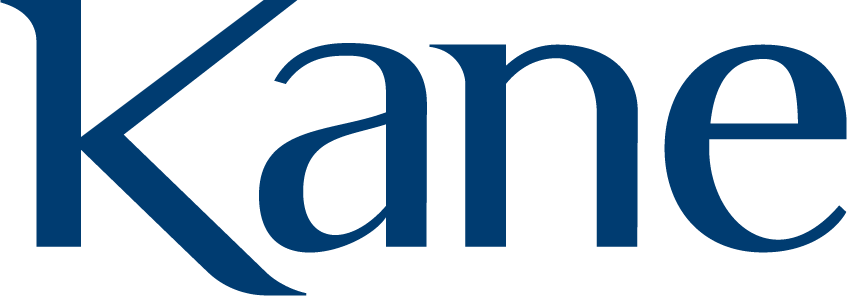Still Buzzing From 2020?
20 Buzzwords from 2020 - The Good, The Bad and the Annoying
Congratulations! You’ve made it to a new year. Welcome to 2021, where the times are still unprecedented and the opportunities for self-improvement are never-ending. As we take baby steps into this new year, it's a good opportunity to look back and see where we were while focusing on where we want to be.
One of my favorite ways of doing that is to revisit the previous year through words. In the world of business, we are constantly coming up with new words to simplify or give meaning to certain experiences. This blog will explore some of those words. That’s right, I am talking about buzzwords.
We’ve all heard them. We’ve all used them. Some of us, more than others. But in retrospect, I believe they are telling of what was going on in the business world at the time and where the business industry was focused. Whether it was optimistic and looking to the future or maybe going through a moment of needed change. Buzzwords tell a story.
Let’s jump into it. Here are 20 business buzzwords from 2020 that have probably been living rent-free in your head.
Disruptor - Used to describe a company, product or service that radically changes an existing market or industry, bringing them to the forefront.
Synergy - The way different components work together to complete a goal, showing strength from the joining of the parts. A team that gets along well and produces high-quality work is often described as having synergy.
Customer Journey - Every interaction a customer has with a company or brand, from their initial interest in a product to requests for support after making a purchase.
Deep Dive - A comprehensive analysis of a subject or issue; also a thorough version of brainstorming of all possible ideas based on that topic
Guru - A leading authority on a particular topic or a person with influential ideas or theories about a topic.
Digital Transformation - the integration of digital technology within an organization in a way that fundamentally changes how a company operates and delivers value to customers, which ultimately impacts business performance.
Pain Point - A problem experienced by a business or its customers. Referring to issues as pain points emphasizes that they can be solved and improved upon.
Pivot - A significant business change intended to help a business recover from a challenging period; often used to describe a change in direction or focus because of that significant change.
Low-hanging Fruit - A thing or person that can be accomplished, won, obtained, or persuaded with little effort.
Hyperlocal - The use of GPS data to geographically target audiences and provide location-based advertising delivered through online means, usually phone. It means staying focused on a particular market.
Next-Generation - Innovations and possible changes within an industry that use the latest technology to improve on the current state.
Holistic - An approach to a problem that addresses every part of an issue and takes all factors into account when designing a solution.
Freemium - Content used to introduce customers to the paid version of a product by offering a simplified version for free.
Touchpoint - The way consumers engage with a business. Touchpoints can be customer service representatives, physical stores, products, websites or apps.
Big Data - Large amounts of information collected by marketers and other groups. Big data can be used to analyze markets and uncover buying patterns.
Incentivize - Providing incentives to motivate customers or employees to buy a product or produce quality work.
Move the Needle - The effort that it takes to encourage a big change within a specific industry. People who move the needle are seen as influential within a business or community.
The New Normal - A sustained change in behavior patterns, situations or routines as a direct result of a major event, like the COVID-19 pandemic.
Drill Down - The process of finding the root causes of a problem.
Bandwidth - Adapted from the technology industry, it is now used to describe how much energy or time an employee can contribute to a project.
TO BUZZ OR NOT TO BUZZ - THAT IS THE QUESTION.
As a communications professional, I can understand why buzzwords are a thing, but should they be? Many of these buzzwords get tossed around so carelessly that at the end of the day they lose their meaning entirely. Take for example the word “Best Practice.” According to Televerde, this word is a misnomer because it implies that we should all be following the same industry standards. But if you are doing things the way everyone else is doing them, does that really make you the best at it?
Also, the novelty of these words wears off pretty quickly. At that point, all they do is make things sound complicated. An example of this is the word “streamline.” It means “to make simpler and more efficient,” but why not just say that? Buzzwords often become a crutch, strategically placed in sentences when the writer doesn’t know what else to say. Instead of sounding knowledgeable and offering useful insight, the message becomes unclear.
To avoid that, here are some buzzwords (according to Forbes) to consider removing from your vocabulary in 2021. Doing so has the potential to improve your workplace communication skills through the use of clearer and more precise language.
Unprecedented times
Disruptor
Synergy
Growth Hacking
Move the Needle
Omnichannel
Deck
The Bottom Line
I’m not saying to avoid using buzzwords altogether. If you use them sparingly, you avoid sounding wordy and over-indulgent. I challenge you to ditch the buzzwords and aim for more precise language. With everything happening in the world today, who wants to spend more time trying to decode buzzwords? If you ask me - Ain’t nobody got time for that!

